- Home
- Edith Wharton
Artemis to Actaeon and Other Verse Page 2
Artemis to Actaeon and Other Verse Read online
Page 2
His body? Who flung Galen from his seat,
And founded the great dynasty of truth
In error's central kingdom?
Ask men that,
And see their answer: just a wondering stare
To learn things were not always as they are--
The very fight forgotten with the fighter;
Already grows the moss upon my grave!
Ay, and so meet--hold fast to that, Vesalius.
They only, who re-conquer day by day
The inch of ground they camped on over-night,
Have right of foothold on this crowded earth.
I left mine own; he seized it; with it went
My name, my fame, my very self, it seems,
Till I am but the symbol of a man,
The sign-board creaking o'er an empty inn.
He names me--true! Oh, give the door its due
I entered by. Only, I pray you, note,
Had door been none, a shoulder-thrust of mine
Had breached the crazy wall"--he seems to say.
So meet--and yet a word of thanks, of praise,
Of recognition that the clue was found,
Seized, followed, clung to, by some hand now dust--
Had this obscured his quartering of my shield?
How the one weakness stirs again! I thought
I had done with that old thirst for gratitude
That lured me to the desert years ago.
I did my work--and was not that enough?
No; but because the idlers sneered and shrugged,
The envious whispered, the traducers lied,
And friendship doubted where it should have cheered
I flung aside the unfinished task, sought praise
Outside my soul's esteem, and learned too late
That victory, like God's kingdom, is within.
(Nay, let the folio rest upon my knee.
I do not feel its weight.) Ingratitude?
The hurrying traveller does not ask the name
Of him who points him on his way; and this
Fallopius sits in the mid-heart of me,
Because he keeps his eye upon the goal,
Cuts a straight furrow to the end in view,
Cares not who oped the fountain by the way,
But drinks to draw fresh courage for his journey.
That was the lesson that Ignatius taught--
The one I might have learned from him, but would not--
That we are but stray atoms on the wind,
A dancing transiency of summer eves,
Till we become one with our purpose, merged
In that vast effort of the race which makes
Mortality immortal.
"He that loseth
His life shall find it": so the Scripture runs.
But I so hugged the fleeting self in me,
So loved the lovely perishable hours,
So kissed myself to death upon their lips,
That on one pyre we perished in the end--
A grimmer bonfire than the Church e'er lit!
Yet all was well--or seemed so--till I heard
That younger voice, an echo of my own,
And, like a wanderer turning to his home,
Who finds another on the hearth, and learns,
Half-dazed, that other is his actual self
In name and claim, as the whole parish swears,
So strangely, suddenly, stood dispossessed
Of that same self I had sold all to keep,
A baffled ghost that none would see or hear!
"Vesalius? Who's Vesalius? This Fallopius
It is who dragged the Galen-idol down,
Who rent the veil of flesh and forced a way
Into the secret fortalice of life"--
Yet it was I that bore the brunt of it!
Well, better so! Better awake and live
My last brief moment as the man I was,
Than lapse from life's long lethargy to death
Without one conscious interval. At least
I repossess my past, am once again
No courtier med'cining the whims of kings
In muffled palace-chambers, but the free
Friendless Vesalius, with his back to the wall
And all the world against him. O, for that
Best gift of all, Fallopius, take my thanks--
That, and much more. At first, when Padua wrote:
"Master, Fallopius dead, resume again
The chair even he could not completely fill,
And see what usury age shall take of youth
In honours forfeited"--why, just at first,
I was quite simply credulously glad
To think the old life stood ajar for me,
Like a fond woman's unforgetting heart.
But now that death waylays me--now I know
This isle is the circumference of my days,
And I shall die here in a little while--
So also best, Fallopius!
For I see
The gods may give anew, but not restore;
And though I think that, in my chair again,
I might have argued my supplanters wrong
In this or that--this Cesalpinus, say,
With all his hot-foot blundering in the dark,
Fabricius, with his over-cautious clutch
On Galen (systole and diastole
Of Truth's mysterious heart!)--yet, other ways,
It may be that this dying serves the cause.
For Truth stays not to build her monument
For this or that co-operating hand,
But props it with her servants' failures--nay,
Cements its courses with their blood and brains,
A living substance that shall clinch her walls
Against the assaults of time. Already, see,
Her scaffold rises on my hidden toil,
I but the accepted premiss whence must spring
The airy structure of her argument;
Nor could the bricks it rests on serve to build
The crowning finials. I abide her law:
A different substance for a different end--
Content to know I hold the building up;
Though men, agape at dome and pinnacles,
Guess not, the whole must crumble like a dream
But for that buried labour underneath.
Yet, Padua, I had still my word to say!
Let others say it!--Ah, but will they guess
Just the one word--? Nay, Truth is many-tongued.
What one man failed to speak, another finds
Another word for. May not all converge
In some vast utterance, of which you and I,
Fallopius, were but halting syllables?
So knowledge come, no matter how it comes!
No matter whence the light falls, so it fall!
Truth's way, not mine--that I, whose service failed
In action, yet may make amends in praise.
Fabricius, Cesalpinus, say your word,
Not yours, or mine, but Truth's, as you receive it!
You miss a point I saw? See others, then!
Misread my meaning? Yet expound your own!
Obscure one space I cleared? The sky is wide,
And you may yet uncover other stars.
For thus I read the meaning of this end:
There are two ways of spreading light: to be
The candle or the mirror that reflects it.
I let my wick burn out--there yet remains
To spread an answering surface to the flame
That others kindle.
Turn me in my bed.
The window darkens as the hours swing round;
But yonder, look, the other casement glows!
Let me face westward as my sun goes down.
MARGARET OF CORTONA
FRA PAOLO, since they say the end is near,
And you of all men have the g
entlest eyes,
Most like our father Francis; since you know
How I have toiled and prayed and scourged and striven,
Mothered the orphan, waked beside the sick,
Gone empty that mine enemy might eat,
Given bread for stones in famine years, and channelled
With vigilant knees the pavement of this cell,
Till I constrained the Christ upon the wall
To bend His thorn-crowned Head in mute forgiveness . . .
Three times He bowed it . . . (but the whole stands writ,
Sealed with the Bishop's signet, as you know),
Once for each person of the Blessed Three--
A miracle that the whole town attests,
The very babes thrust forward for my blessing,
And either parish plotting for my bones--
Since this you know: sit near and bear with me.
I have lain here, these many empty days
I thought to pack with Credos and Hail Marys
So close that not a fear should force the door--
But still, between the blessed syllables
That taper up like blazing angel heads,
Praise over praise, to the Unutterable,
Strange questions clutch me, thrusting fiery arms,
As though, athwart the close-meshed litanies,
My dead should pluck at me from hell, with eyes
Alive in their obliterated faces! . . .
I have tried the saints' names and our blessed Mother's
Fra Paolo, I have tried them o'er and o'er,
And like a blade bent backward at first thrust
They yield and fail me--and the questions stay.
And so I thought, into some human heart,
Pure, and yet foot-worn with the tread of sin,
If only I might creep for sanctuary,
It might be that those eyes would let me rest. . .
Fra Paolo, listen. How should I forget
The day I saw him first? (You know the one.)
I had been laughing in the market-place
With others like me, I the youngest there,
Jostling about a pack of mountebanks
Like flies on carrion (I the youngest there!),
Till darkness fell; and while the other girls
Turned this way, that way, as perdition beckoned,
I, wondering what the night would bring, half hoping:
If not, this once, a child's sleep in my garret,
At least enough to buy that two-pronged coral
The others covet 'gainst the evil eye,
Since, after all, one sees that I'm the youngest--
So, muttering my litany to hell
(The only prayer I knew that was not Latin),
Felt on my arm a touch as kind as yours,
And heard a voice as kind as yours say "Come."
I turned and went; and from that day I never
Looked on the face of any other man.
So much is known; so much effaced; the sin
Cast like a plague-struck body to the sea,
Deep, deep into the unfathomable pardon--
(The Head bowed thrice, as the whole town attests).
What more, then? To what purpose? Bear with me!--
It seems that he, a stranger in the place,
First noted me that afternoon and wondered:
How grew so white a bud in such black slime,
And why not mine the hand to pluck it out?
Why, so Christ deals with souls, you cry--what then?
Not so! Not so! When Christ, the heavenly gardener,
Plucks flowers for Paradise (do I not know?),
He snaps the stem above the root, and presses
The ransomed soul between two convent walls,
A lifeless blossom in the Book of Life.
But when my lover gathered me, he lifted
Stem, root and all--ay, and the clinging mud--
And set me on his sill to spread and bloom
After the common way, take sun and rain,
And make a patch of brightness for the street,
Though raised above rough fingers--so you make
A weed a flower, and others, passing, think:
"Next ditch I cross, I'll lift a root from it,
And dress my window" . . . and the blessing spreads.
Well, so I grew, with every root and tendril
Grappling the secret anchorage of his love,
And so we loved each other till he died. . . .
Ah, that black night he left me, that dead dawn
I found him lying in the woods, alive
To gasp my name out and his life-blood with it,
As though the murderer's knife had probed for me
In his hacked breast and found me in each wound. . .
Well, it was there Christ came to me, you know,
And led me home--just as that other led me.
(Just as that other? Father, bear with me!)
My lover's death, they tell me, saved my soul,
And I have lived to be a light to men.
And gather sinners to the knees of grace.
All this, you say, the Bishop's signet covers.
But stay! Suppose my lover had not died?
(At last my question! Father, help me face it.)
I say: Suppose my lover had not died--
Think you I ever would have left him living,
Even to be Christ's blessed Margaret?
--We lived in sin? Why, to the sin I died to
That other was as Paradise, when God
Walks there at eventide, the air pure gold,
And angels treading all the grass to flowers!
He was my Christ--he led me out of hell--
He died to save me (so your casuists say!)--
Could Christ do more? Your Christ out-pity mine?
Why, yours but let the sinner bathe His feet;
Mine raised her to the level of his heart. . .
And then Christ's way is saving, as man's way
Is squandering--and the devil take the shards!
But this man kept for sacramental use
The cup that once had slaked a passing thirst;
This man declared: "The same clay serves to model
A devil or a saint; the scribe may stain
The same fair parchment with obscenities,
Or gild with benedictions; nay," he cried,
"Because a satyr feasted in this wood,
And fouled the grasses with carousing foot,
Shall not a hermit build his chapel here
And cleanse the echoes with his litanies?
The sodden grasses spring again--why not
The trampled soul? Is man less merciful
Than nature, good more fugitive than grass?"
And so--if, after all, he had not died,
And suddenly that door should know his hand,
And with that voice as kind as yours he said:
"Come, Margaret, forth into the sun again,
Back to the life we fashioned with our hands
Out of old sins and follies, fragments scorned
Of more ambitious builders, yet by Love,
The patient architect, so shaped and fitted
That not a crevice let the winter in--"
Think you my bones would not arise and walk,
This bruised body (as once the bruised soul)
Turn from the wonders of the seventh heaven
As from the antics of the market-place?
If this could be (as I so oft have dreamed),
I, who have known both loves, divine and human,
Think you I would not leave this Christ for that?
--I rave, you say? You start from me, Fra Paolo?
Go, then; your going leaves me not alone.
I marvel, rather, that I feared the question,
Since, now I name it, it draws near to me
With such dear reassurance
in its eyes,
And takes your place beside me. . .
Nay, I tell you,
Fra Paolo, I have cried on all the saints--
If this be devil's prompting, let them drown it
In Alleluias! Yet not one replies.
And, for the Christ there--is He silent too?
Your Christ? Poor father; you that have but one,
And that one silent--how I pity you!
He will not answer? Will not help you cast
The devil out? But hangs there on the wall,
Blind wood and bone--?
How if I call on Him--
I, whom He talks with, as the town attests?
If ever prayer hath ravished me so high
That its wings failed and dropped me in Thy breast,
Christ, I adjure Thee! By that naked hour
Of innermost commixture, when my soul
Contained Thee as the paten holds the host,
Judge Thou alone between this priest and me;
Nay, rather, Lord, between my past and present,
Thy Margaret and that other's--whose she is
By right of salvage--and whose call should follow!
Thine? Silent still.-- Or his, who stooped to her,
And drew her to Thee by the bands of love?
Not Thine? Then his?
Ah, Christ--the thorn-crowned Head
Bends . . . bends again . . . down on your knees,
Fra Paolo!
If his, then Thine!
Kneel, priest, for this is heaven. . .
A TORCHBEARER
GREAT cities rise and have their fall; the brass
That held their glories moulders in its turn.
Hard granite rots like an uprooted weed,
And ever on the palimpsest of earth
Impatient Time rubs out the word he writ.
But one thing makes the years its pedestal,
Springs from the ashes of its pyre, and claps
A skyward wing above its epitaph--
The will of man willing immortal things.
The ages are but baubles hung upon
The thread of some strong lives--and one slight wrist
May lift a century above the dust;
For Time,
The Sisyphean load of little lives,
Becomes the globe and sceptre of the great.
But who are these that, linking hand in hand,
Transmit across the twilight waste of years
The flying brightness of a kindled hour?
Not always, nor alone, the lives that search
How they may snatch a glory out of heaven
Or add a height to Babel; oftener they
That in the still fulfilment of each day's
Pacific order hold great deeds in leash,
That in the sober sheath of tranquil tasks
Hide the attempered blade of high emprise,

 The Age of Innocence
The Age of Innocence The Reef
The Reef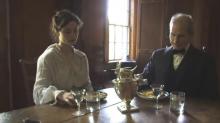 Summer
Summer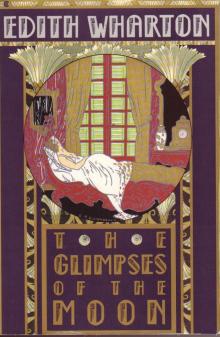 The Glimpses of the Moon
The Glimpses of the Moon Xingu
Xingu The Fruit of the Tree
The Fruit of the Tree Fast and Loose
Fast and Loose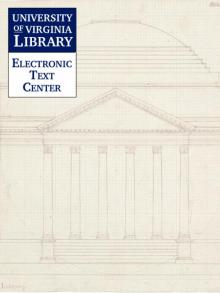 Artemis to Actaeon and Other Verse
Artemis to Actaeon and Other Verse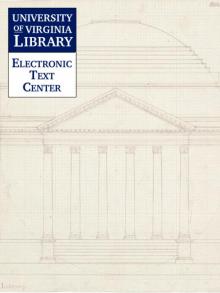 The Line of Least Resistance
The Line of Least Resistance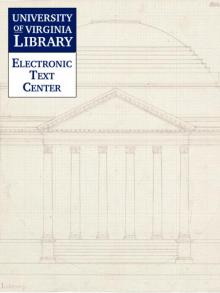 The Lamp of Psyche
The Lamp of Psyche The Reckoning
The Reckoning Afterward
Afterward The New York Stories of Edith Wharton
The New York Stories of Edith Wharton The 2014 Halloween Horrors Megapack
The 2014 Halloween Horrors Megapack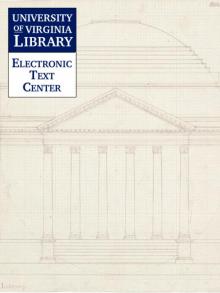 'Copy': A Dialogue
'Copy': A Dialogue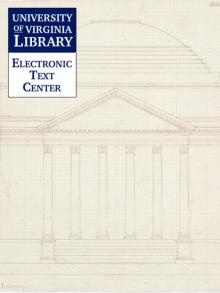 The Recovery
The Recovery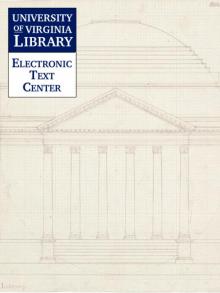 The Fulness of Life
The Fulness of Life Early Short Stories Vol. 1
Early Short Stories Vol. 1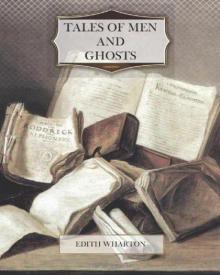 Tales of Men and Ghosts
Tales of Men and Ghosts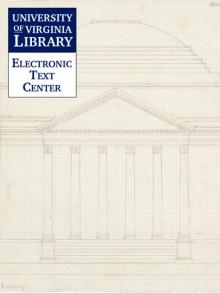 The House of the Dead Hand
The House of the Dead Hand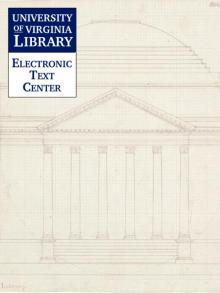 That Good May Come
That Good May Come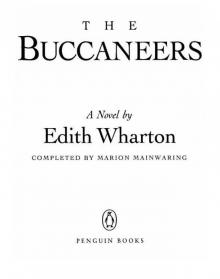 The Buccaneers
The Buccaneers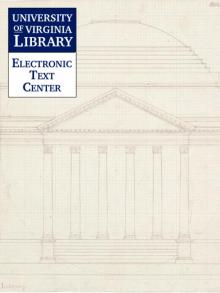 Other Times, Other Manners
Other Times, Other Manners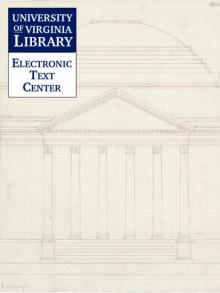 The Hermit and the Wild Woman
The Hermit and the Wild Woman Kerfol
Kerfol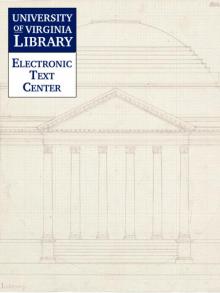 The Duchess at Prayer
The Duchess at Prayer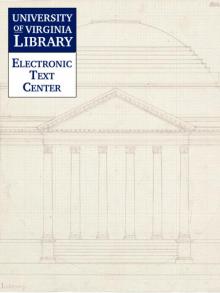 Bunner Sisters
Bunner Sisters The Choice
The Choice Madame De Treymes
Madame De Treymes Ethan Frome, Summer, Bunner Sisters
Ethan Frome, Summer, Bunner Sisters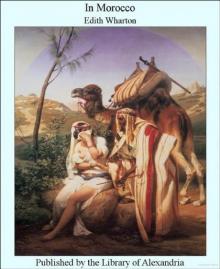 In Morocco
In Morocco The Valley of Decision
The Valley of Decision Age of Innocence (Barnes & Noble Classics Series)
Age of Innocence (Barnes & Noble Classics Series)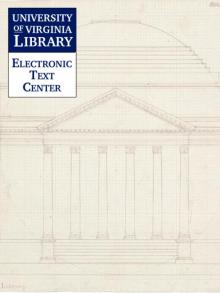 The Angel at the Grave
The Angel at the Grave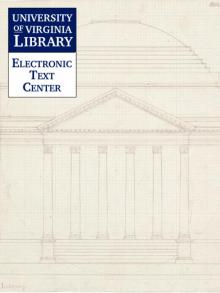 April Showers
April Showers Sanctuary
Sanctuary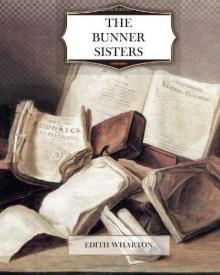 The Bunner Sisters
The Bunner Sisters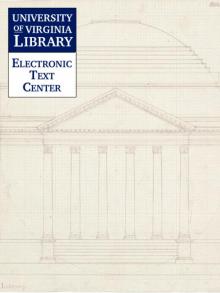 Mrs. Manstey's View
Mrs. Manstey's View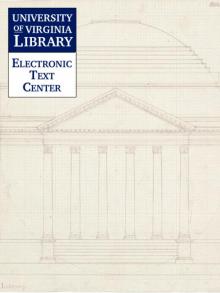 Writing a War Story
Writing a War Story The Custom of the Country
The Custom of the Country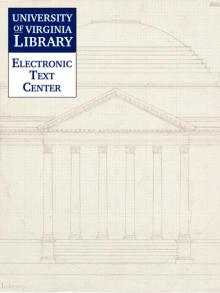 In Trust
In Trust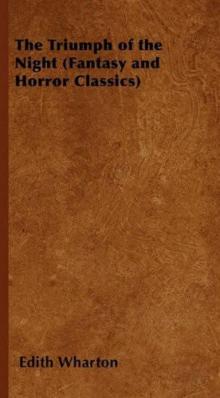 The Triumph of the Night
The Triumph of the Night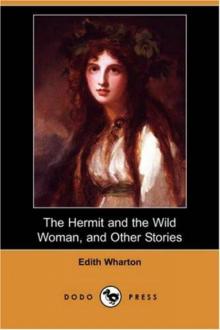 The Hermit and the Wild Woman, and Other Stories
The Hermit and the Wild Woman, and Other Stories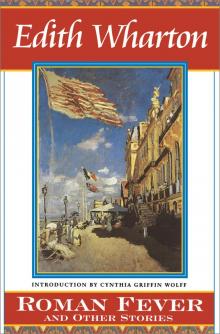 Roman Fever and Other Stories
Roman Fever and Other Stories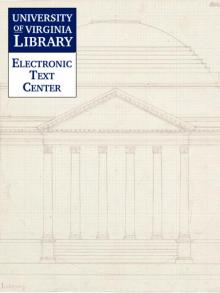 The Mission of Jane
The Mission of Jane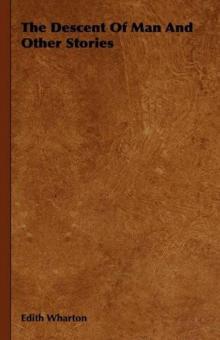 The Descent of Man and Other Stories
The Descent of Man and Other Stories Coming Home
Coming Home The Touchstone
The Touchstone Early Short Stories Vol. 2
Early Short Stories Vol. 2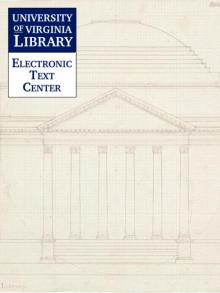 Edith Wharton's Verse, 1879-1919, from various journals.
Edith Wharton's Verse, 1879-1919, from various journals.